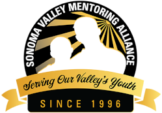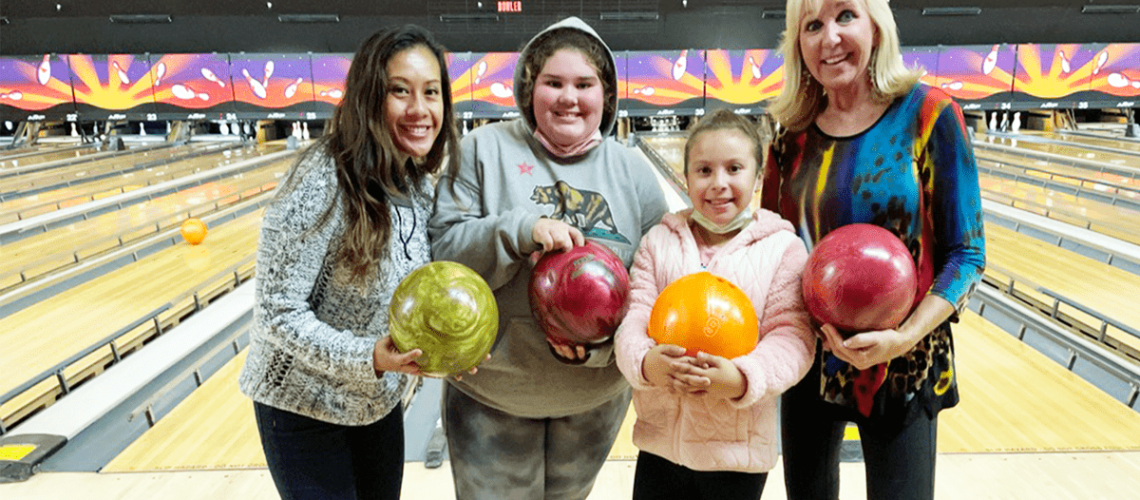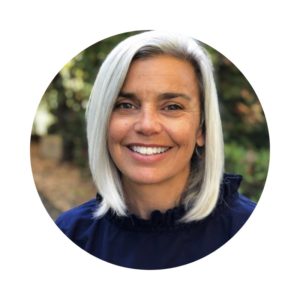Annette Giroux-Smith frets about all of the children on her waitlist, especially three young boys who have been waiting an awfully long time. She thinks they would do best with a male mentor, but that can be hard to come by at the Sonoma Valley Mentoring Alliance. Maybe women who are very high energy and into sports would do, she ponders.
This is the life of a mentoring facilitator, who are charged with making mentor/mentee matches and ensuring all the stakeholders of the program are working together for the best interest of all the 300+ children enrolled in the popular program. Currently, nearly 80 are waiting for the right adult role model to join the program and be their match.
January is National Mentoring Month, and the alliance, an on-campus program, is always looking for more adults who can spend an hour or two a week offering some additional attention and fun activities to a local student.
Once mentors apply, it takes about two weeks from acceptance to being matched up with a student. It’s up to the facilitator to determine who will make a good match, making the role critical to the success for the program.
There are eight facilitators across the mentoring alliance, one for each traditional public school, and they do most of their work from the Mentor Centerson campus. They keep the program running smoothly, said Susie Gallo, executive director of the Mentoring Alliance. “They’re a group of individuals who do their work so intuitively and so well, that the program doesn’t really function without them and their relationship with the school district,” Gallo said.
El Verano Elementary School mentoring center facilitator Annette Giroux-Smith is surrounded by grateful mentees: From left, Adolfo, 11; Jocelyn, 10; Jairo, 9; Kimberly, 10; and Camila, 10, at the mentor center on Thursday, Dec. 15, 2022.
Giroux-Smith, a facilitator at El Verano Elementary School, explained that in her role, there’s nothing she doesn’t do. Going on her ninth year of facilitating, the one thing she can count on is every day will be different. “The day begins where I think it should be ending,” Giroux-Smith said.
Her job is to facilitate every part of the process from application to graduation; she interviews mentor candidates and matches them up, and continues to check in and help the pair until the student graduates high school. Coordinating schedules between the school, parents, students, and their mentors is one of her main responsibilities on a daily basis, and she’s the first to fill in if a mentor has to miss a day.
She currently monitors 15 matches but can have up to 25 at any given time since mentor applications are accepted on a rolling basis throughout the year.
Giroux-Smith works with the teachers, counselors, students and parents on every aspect of the child’s life to ensure that they are getting as much out of the program as possible.
Each facilitator runs the campus Mentor Center, where they have free reign when it comes to designing, decorating, and furnishing the space. Giroux-Smith fills hers with instruments, movie posters, creative elements, and quiet spaces.
“It’s cozy and it’s got little nooks here and there, you know, that people can kind of retreat to and have private conversations or be in the open space,” Giroux-Smith said.
She interviews mentor applicants to get a feel of who they are so that she can better match them up with one of the dozens of students on the waitlist at any given time.
“I call it a get-to-know-each-other thing — I don’t make it into an interview really,” Giroux-Smith said. “I make it really friendly — have people be comfortable with me, comfortable in the space.”
After a preliminary chat, she consults the student’s teachers and sometimes gets input from other facilitators before making a match. That type of cross-collaboration between the alliance and the schools is a huge part of her job, and the program.
“That’s one of the greatest parts of this organization is being school-based and it’s just, you get to be a part of that collaboration,” Giroux-Smith said of the importance of communication with all parties.
That work often starts with getting the parents on board. “They have a preconceived notion of why it is that this is being offered to their child,” Giroux-Smith said. “I have to explain to them, it’s not about you at all, it’s about your child getting the support and being loved and being, you know, opened up to another world or somebody else’s experiences, you know, it’s a role model — it’s just another person outside the family.”
She feels confident in her ability to get parents on board because she found herself in their position just over 20 years ago. “I have the hat of being the parent of a kid in the program, being a facilitator working for the program, and also being a mentor myself.” Giroux-Smith was a working, single mother who was studying to become a nurse when she was approached to have her daughter join the program to get some academic and emotional support. At first, she didn’t know what to make of it, but she realized that it would mean extra help for both her and her daughter.
“It’s not somebody who’s going to try to take over as a parent. We manage these relationships, you know, specifically so they don’t intrude into the private lives of these kids.”
Being a facilitator comes with walking the line between being there for the kids and forming an emotional connection while keeping that boundary. But she believes that her former job in the medical field, studying child development and being a mom has prepared her for this role. “When you find out that somebody is struggling, you know, or something’s happening at homes, that’s very hard,” Giroux-Smith said.
“That’s very difficult because the kids kind of think of me as an auntie, or second mom, you know, and when I heard that things are difficult for them, my heart hurts for them, and I wish I could fix it all and I can’t necessarily. All I can do is just be there for them.”
She also has to deal with reassigning students whose mentors had to drop out of the program, which can be a sticky situation. She does whatever she can to make it as seamless as possible.
Emotional investment in the kids comes with the job description, but that has meant a lot of happy times for Grioux-Smith.
Just recently, she was working at the mentor center at Sonoma Valley High School, as she does each Monday when a young man stopped into the center to say hello to everyone.
He was in the program just a few years ago before he graduated from high school, and now attends the University of California, Berkeley. He stopped by after a visit to his elementary school to talk to the next generation about attending college. He remains in touch with his mentor “That’s one of the biggest things that blows my mind is these kids you just, you see them, they’re going through the day to day and then they move on and they do something that they never imagined they would’ve done. And they come back to say ‘hi,’” Griroux-Smith said.
“Sometimes in the day-to-day, you don’t see it — when it really hits for the kids, but you’ll find out later what they were thinking when they were kids. That’s very impactful, I get really choked up about that.”
There are always small moments when she can tell a mentee is starting to feel the influence of the program, and that’s very special to her. “They behave differently, and they start talking more and opening up, you know, that’s when you know you’ve opened a window or a door into them,” Giroux-Smith said. “That is wonderful when they start to open up.”
Because she has been involved in nearly every aspect of the program through facilitating, her daughter, and her own experience as a mentor, she usually knows what to look for in an applicant. The key things she views as green flags in mentor applicants are patience, confidence, kindness, and the ability to open up.
A common mistake she sees mentors make is coming in with too many expectations, when the most important thing is to simply be there for the child and show up. “Don’t go in with expectations that you’re going to change somebody’s life,” Giroux-Smith said. “Just take it day by day; it’s the little steps that create this big journey.”
According to Gallo, it can be more difficult to find matches for boys who need male role models in their lives because the program doesn’t get as many applicants who are men. “We need mentors of all genders and ages and backgrounds,” Gallo said.
ROBBI PENGELLY / INDEX-TRIBUNE, December 2022


